Category
Popular Articles
- AI (17)
- Android (48)
- App Suggest (13)
- Apple (42)
- Apple TV (4)
- Bluetooth (3)
- Cars (2)
- ChatGpt (1)
- Chrome (2)
- Did you know? (1)
- E-Commerce News (1)
- Ecommerce Websites business (7)
- Electronics Shopping (5)
- Fashion Tips (3)
- Gaming (5)
- Google Gemini (3)
- Hair Care Tips (2)
- How to (13)
- iCloud (1)
- Infotainment System (1)
- Iphone (142)
- Job Posting (1)
- Lifestyle (3)
- Mac (25)
- Mobile Games (1)
- Netflix (1)
- Online Shopping Websites (2)
- Personal Finance Management (3)
- Product Reviews (3)
- Roku TV (4)
- Samsung (10)
- Shopping Tips (13)
- Spotify (1)
- Tech (153)
- VPN (2)
- Windows 11 (36)
- Zero Waste (3)
Discounted Products
-
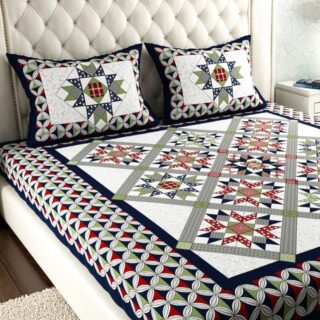 Leo Creation 144 TC Cotton Double Jaipuri Prints Flat Bedsheet(Pack of 1, Blue, Gree, Red, Grey, Light Grey)
Leo Creation 144 TC Cotton Double Jaipuri Prints Flat Bedsheet(Pack of 1, Blue, Gree, Red, Grey, Light Grey)
₹2,999.00Original price was: ₹2,999.00.₹329.00Current price is: ₹329.00. -
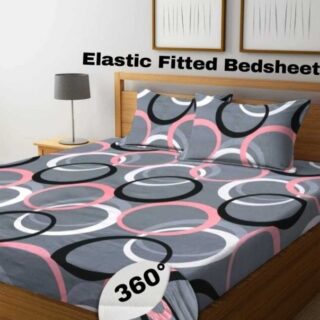 Home Garage 210 TC Cotton King Floral Fitted (Elastic) Bedsheet(Pack of 1, Grey)
Home Garage 210 TC Cotton King Floral Fitted (Elastic) Bedsheet(Pack of 1, Grey)
₹999.00Original price was: ₹999.00.₹299.00Current price is: ₹299.00. -
 Goodrik 140 TC Cotton Double 3D Printed Flat Bedsheet(Pack of 1, Brown)
Goodrik 140 TC Cotton Double 3D Printed Flat Bedsheet(Pack of 1, Brown)
₹499.00Original price was: ₹499.00.₹229.00Current price is: ₹229.00. -
 GLOBALSHOP 350 TC Microfiber Double Floral Flat Bedsheet(Pack of 1, Multicolor)
GLOBALSHOP 350 TC Microfiber Double Floral Flat Bedsheet(Pack of 1, Multicolor)
₹1,250.00Original price was: ₹1,250.00.₹263.00Current price is: ₹263.00. -
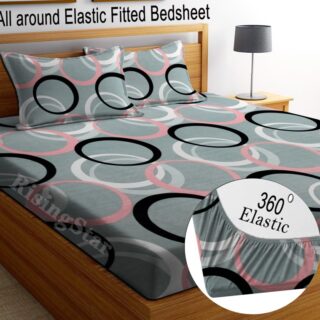 RisingStar 250 TC Microfiber King Printed Fitted (Elastic) Bedsheet(Pack of 1, FITTED-ROUND-CIRCLES-PREMIUM)
RisingStar 250 TC Microfiber King Printed Fitted (Elastic) Bedsheet(Pack of 1, FITTED-ROUND-CIRCLES-PREMIUM)
₹2,299.00Original price was: ₹2,299.00.₹299.00Current price is: ₹299.00. -
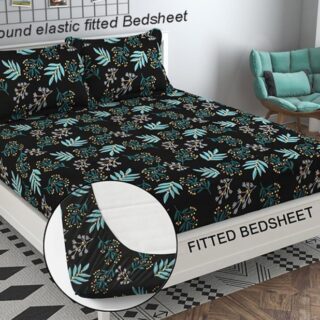 Home Garage 210 TC Cotton King Floral Fitted (Elastic) Bedsheet(Pack of 1, Fitted Black Green)
Home Garage 210 TC Cotton King Floral Fitted (Elastic) Bedsheet(Pack of 1, Fitted Black Green)
₹1,299.00Original price was: ₹1,299.00.₹299.00Current price is: ₹299.00. -
 Home Garage 180 TC Cotton King 3D Printed Flat Bedsheet(Pack of 1, White)
Home Garage 180 TC Cotton King 3D Printed Flat Bedsheet(Pack of 1, White)
₹999.00Original price was: ₹999.00.₹229.00Current price is: ₹229.00. -
 Home Sizzler 153 cm (5 ft) Polyester Room Darkening Window Curtain (Pack Of 2)(Floral, Maroon)
Home Sizzler 153 cm (5 ft) Polyester Room Darkening Window Curtain (Pack Of 2)(Floral, Maroon)
₹799.00Original price was: ₹799.00.₹299.00Current price is: ₹299.00. -
 Panipat Textile Hub 152.4 cm (5 ft) Polyester Window Curtain (Pack Of 2)(Solid, Aqua)
Panipat Textile Hub 152.4 cm (5 ft) Polyester Window Curtain (Pack Of 2)(Solid, Aqua)
₹1,899.00Original price was: ₹1,899.00.₹299.00Current price is: ₹299.00. -
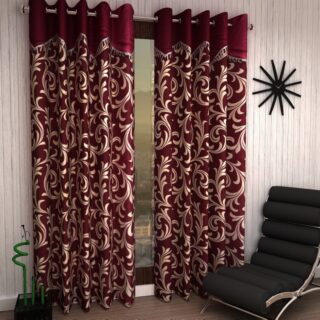 Home Sizzler 214 cm (7 ft) Polyester Semi Transparent Door Curtain (Pack Of 2)(Floral, Maroon)
Home Sizzler 214 cm (7 ft) Polyester Semi Transparent Door Curtain (Pack Of 2)(Floral, Maroon)
₹1,199.00Original price was: ₹1,199.00.₹399.00Current price is: ₹399.00. -
 Home Sizzler 153 cm (5 ft) Polyester Room Darkening Window Curtain (Pack Of 2)(Floral, Brown)
Home Sizzler 153 cm (5 ft) Polyester Room Darkening Window Curtain (Pack Of 2)(Floral, Brown)
₹799.00Original price was: ₹799.00.₹299.00Current price is: ₹299.00. -
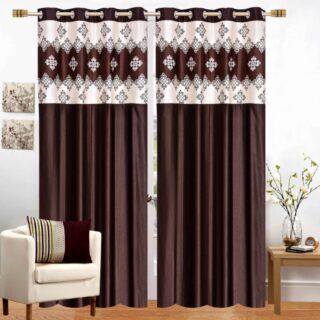 Stella Creations 214 cm (7 ft) Polyester Room Darkening Door Curtain (Pack Of 2)(Abstract, Brown)
Stella Creations 214 cm (7 ft) Polyester Room Darkening Door Curtain (Pack Of 2)(Abstract, Brown)
₹1,299.00Original price was: ₹1,299.00.₹449.00Current price is: ₹449.00. -
 Homefab India 152.5 cm (5 ft) Polyester Room Darkening Window Curtain (Pack Of 2)(Floral, Light Blue)
Homefab India 152.5 cm (5 ft) Polyester Room Darkening Window Curtain (Pack Of 2)(Floral, Light Blue)
₹1,199.00Original price was: ₹1,199.00.₹319.00Current price is: ₹319.00. -
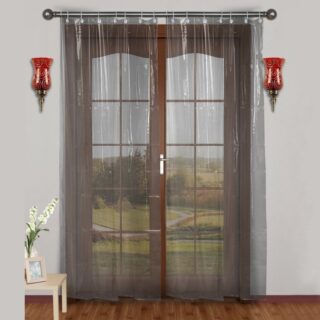 Urban Home 214 cm (7 ft) PVC Transparent Door Curtain Single Curtain(Solid, Off White)
Urban Home 214 cm (7 ft) PVC Transparent Door Curtain Single Curtain(Solid, Off White)
₹699.00Original price was: ₹699.00.₹203.00Current price is: ₹203.00. -
 Panipat Textile Hub 213 cm (7 ft) Polyester Door Curtain (Pack Of 2)(Solid, Brown)
Panipat Textile Hub 213 cm (7 ft) Polyester Door Curtain (Pack Of 2)(Solid, Brown)
₹1,199.00Original price was: ₹1,199.00.₹349.00Current price is: ₹349.00.
Affiliate Links
Promotion
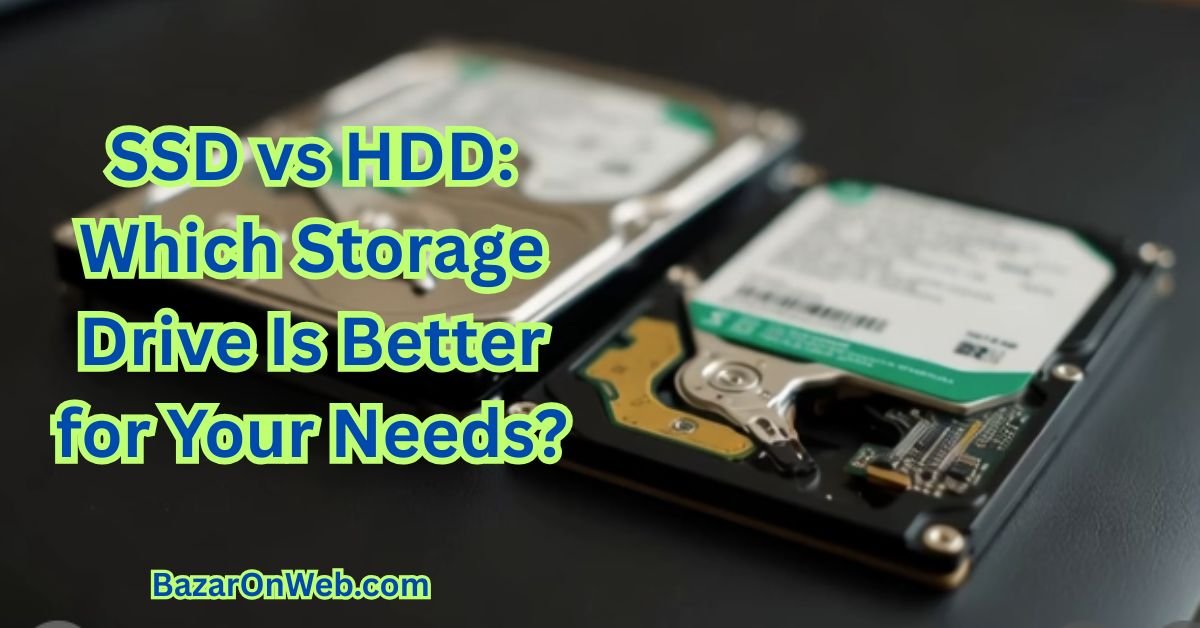
Understand the real differences between SSDs and HDDs. Speed, durability, pricing, lifespan, and best use cases explained in a simple guide.
Hey friends, Jessica here. As someone who uses laptops and desktops daily for work, editing photos, storing huge video files, and testing devices for my reviews, I’ve gone through more storage drives than I can count. I remember the first time I switched from an HDD to an SSD on my old Windows laptop. The difference was unbelievable. My system went from taking nearly two minutes to boot to starting up in under ten seconds. Apps opened instantly, files loaded faster, and the entire laptop felt like new.
Ever since then, I’ve helped dozens of friends and readers upgrade their storage. The most common question I get is: “Should I get an SSD or HDD?”
So today, I’m breaking it down in the clearest, most real-world way possible. This is your complete guide to everything you should know about SSDs vs HDDs in 2026.
1. What Are SSDs and HDDs?
Before choosing between them, you need to understand what they actually are.
1.1 What Is an HDD?
A Hard Disk Drive (HDD) is the traditional storage device that has been around since the 1950s. It contains:
- A spinning magnetic disk (platter)
- A mechanical arm
- A read/write head
The disk spins at high speed (5400 RPM or 7200 RPM usually), and the mechanical arm reads data from the disk.
HDDs are:
- Mechanical
- More affordable
- Available in larger capacities (1TB–10TB)
But they are slower and more prone to physical damage.
1.2 What Is an SSD?
A Solid State Drive (SSD) stores data in flash memory chips. There are no moving parts, making it far more reliable.
SSDs come in different types:
- SATA SSD (similar speed to faster HDDs)
- NVMe SSD (super-fast, fits into M.2 slot on motherboard)
- PCIe SSD (high-end performance for desktops)
SSDs are known for:
- Lightning-fast speed
- Higher durability
- Low power usage
- Better performance in every single use case
2. Speed Comparison: SSD vs HDD
Speed is one of the biggest differences between them.
2.1 Boot Speed
- HDD laptops: 40–90 seconds to load Windows or macOS
- SSD laptops: 5–12 seconds
This alone is enough to convince most people to upgrade.
2.2 File Transfer Speed
HDD Transfer Speed:
- 80–160 MB/s
SATA SSD Transfer Speed:
- 450–550 MB/s
NVMe SSD Transfer Speed:
- 1500–7000+ MB/s
You’re looking at up to 50× faster transfers with NVMe compared to HDD.
So if you work with:
- 4K videos
- RAW photos
- Large software
- Heavy multitasking
SSD is the obvious winner.
3. Reliability and Durability
This is where SSDs absolutely dominate.
3.1 HDD Durability
Because HDDs have moving parts:
- They can break if dropped
- They get damaged if shaken while running
- Long-term wear and tear affects them
HDDs are vulnerable to:
- Shock
- Dust
- Heat
- Mechanical failure
3.2 SSD Durability
SSDs have no moving parts, making them:
- Shock-resistant
- Drop-resistant
- Longer-lasting
They’re perfect for:
- Laptops
- External portable drives
- Gaming
- Professionals who travel
If durability matters to you, SSD is the clear winner.
4. Storage Capacity Comparison
This is the one area where HDD still wins.
4.1 HDD Storage Options
You can easily find HDDs in:
- 1TB
- 2TB
- 4TB
- 8TB
- Even 10TB or 12TB
At very reasonable prices.
4.2 SSD Storage Options
SSDs are usually available in:
- 256GB
- 512GB
- 1TB
- 2TB
- 4TB (higher price)
- 8TB (very expensive)
If you need massive storage on a budget, HDD wins.
But if you need performance, SSD wins.
5. Price Comparison
Price is the biggest deciding factor for many users.
HDD Price (Approx.)
- 1TB HDD: $35–$45
- 2TB HDD: $50–$70
SSD Price (Approx.)
- 500GB SATA SSD: $40–$50
- 1TB SATA SSD: $55–$75
- 1TB NVMe SSD: $70–$120
So yes, SSDs are more expensive—but prices have dropped a lot in recent years.
For everyday users, SSDs are totally worth the extra cost because of the speed improvement.
6. Noise, Heat, and Power Usage
This may not seem important, but it makes a big difference for laptops.
6.1 HDD
- Makes clicking or spinning sounds
- Generates more heat
- Consumes more battery
- Slows down when hot
6.2 SSD
- Silent
- Stays cool
- Consumes low power
- Helps improve battery life
Laptops with SSDs often get 20–40% better battery performance.
7. Lifespan and Wear Level
SSDs and HDDs both wear out over time, but how they age is different.
7.1 HDD Lifespan
HDD lifespan depends on:
- Disk quality
- Mechanical components
- Environmental factors
The moving parts eventually fail.
Average lifespan: 3–5 years (can be more if used carefully)
7.2 SSD Lifespan
SSDs have something called write cycles.
After a certain number of writes, the memory cells wear out.
However, modern SSDs last much longer than people think.
Average lifespan: 5–10 years
Most users upgrade their devices before the SSD fails.
8. Performance in Real-World Usage
Let’s talk about how each drive feels in day-to-day use.
8.1 SSD Performance
Everything feels instant:
- Booting
- Opening apps
- Loading games
- Transferring files
- Multitasking
- Browsing
- Searching files
If your system feels slow, upgrading to SSD is the best thing you can do.
8.2 HDD Performance
HDDs slow down over time due to:
- Fragmentation
- Heat
- Aging components
Expect:
- Slower boot
- Stuttering apps
- Delays when opening large files
- Hanging during multitasking
If you’re a casual user who only needs storage, HDD is fine.
But for performance? SSD wins every single time.
9. Gaming: SSD vs HDD
As someone who plays games on PC and console, here’s what I’ve learned:
Games stored on SSD:
- Load faster
- Stream assets quicker
- Reduce lag during open-world movement
- Offer smoother performance
Many AAA games now require SSD for optimal performance.
Games stored on HDD:
- Long loading screens
- Late texture loading
- Stutters in open-world games
- Slow installation times
If you’re a gamer, SSD is absolutely worth it.
10. Video Editing and Professional Use
For creators, SSDs are a lifesaver.
In video editing:
- SSD improves scrub speed
- Faster preview rendering
- Faster import/export
- No lag with 4K or 6K footage
In photo editing:
- RAW file loading is faster
- Apps like Lightroom launch instantly
- Catalog files read more smoothly
Professionals should always go with SSD.
11. SSD Types Explained (Which One Should You Choose?)
Many people get confused between SATA, NVMe, and PCIe SSDs.
11.1 SATA SSD
- Works on older laptops
- About 5× faster than HDD
- Best upgrade for old computers
11.2 NVMe SSD
- Much faster than SATA
- Uses M.2 slot
- Ideal for modern laptops and desktops
11.3 PCIe SSD
- High-end
- Best for gaming desktops and workstations
- Extremely fast
If your laptop supports NVMe, choose NVMe.
If not, SATA SSD is enough.
12. External SSD vs External HDD
If you’re buying an external drive:
External SSD Pros
- Super fast
- Portable
- Light
- Shock-resistant
External HDD Pros
- Cheaper
- Larger capacity
If you travel or backup sensitive data, SSD is safer.
13. Which One Should You Buy? (My Recommendation as Jessica)
Here’s a quick answer for different types of users.
For Students
Buy an SSD (256GB or 512GB).
You need speed more than large storage.
For Office Work
SSD is ideal. HDD will slow you down over time.
For Gamers
NVMe SSD is the best option.
Games run significantly smoother.
For Video Editors
SSD (preferably NVMe).
HDD cannot keep up with 4K editing.
For Budget Users
Buy a hybrid setup:
- SSD for operating system
- HDD for large files
This gives you the best of both worlds.
For Servers or Massive Storage
HDD still makes sense because of cost efficiency.
14. Final Verdict: SSD vs HDD
After using both types for years, here’s the bottom line:
Choose SSD if you want:
- Speed
- Instant performance
- Reliability
- Better battery life
- Smooth gaming and editing
- Quieter device
Choose HDD if you want:
- Large storage
- Lower cost
- Backup drives for huge files
But for most people today, SSD is the better choice.
It makes your computer feel faster, smoother, and more modern.
Conclusion
SSDs represent the future of storage. HDDs still have their place, especially for large storage on a budget, but they can’t compete with SSDs in terms of performance. If your laptop or desktop feels slow or old, upgrading to an SSD is one of the easiest and smartest decisions you can make.
Written by Bazaronweb
Latest Tech Articles
- How to Use Face ID to Lock & Hide Apps on iOS

- How to Check RAM Usage on Android Without Third‑Party Apps

- Gmail Keeps Crashing on Android? 7 Proven Fixes That Actually Work in 2026

- Why Your iPhone Has Problems After iOS Update (And How to Fix Them)

- iPhone Stuck in Headphone Mode? Proven Solutions to Restore Sound

Products
-
![Apple Watch Ultra 3 [GPS + Cellular 49mm] Running & Multisport Smartwatch w/Rugged Titanium Case w/Black Titanium Milanese Loop - M. Satellite Communications, Advanced Health & Fitness Tracking](https://bazaronweb.com/retailstores/wp-content/uploads/2025/09/apple-watch-320x320.jpg) Apple Watch Ultra 3 [GPS + Cellular 49mm] Running & Multisport Smartwatch w/Rugged Titanium Case w/Black Titanium Milanese Loop - M. Satellite Communications, Advanced Health & Fitness Tracking
Apple Watch Ultra 3 [GPS + Cellular 49mm] Running & Multisport Smartwatch w/Rugged Titanium Case w/Black Titanium Milanese Loop - M. Satellite Communications, Advanced Health & Fitness Tracking
-
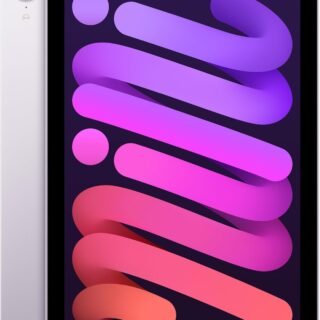 Apple iPad mini (A17 Pro): Apple Intelligence, 8.3-inch Liquid Retina Display, 256GB, Wi-Fi 6E, 12MP Front/12MP Back Camera, Touch ID, All-Day Battery Life — Purple
Apple iPad mini (A17 Pro): Apple Intelligence, 8.3-inch Liquid Retina Display, 256GB, Wi-Fi 6E, 12MP Front/12MP Back Camera, Touch ID, All-Day Battery Life — Purple
-
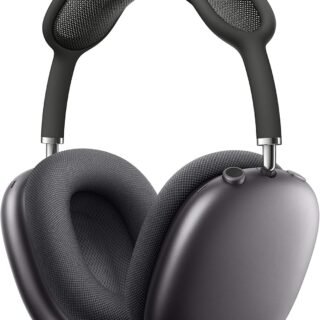 Apple AirPods Max Wireless Over-Ear Headphones, Active Noise Cancelling, Transparency Mode, Personalized Spatial Audio, Dolby Atmos, Bluetooth Headphones for iPhone – Space Gray
Apple AirPods Max Wireless Over-Ear Headphones, Active Noise Cancelling, Transparency Mode, Personalized Spatial Audio, Dolby Atmos, Bluetooth Headphones for iPhone – Space Gray
-
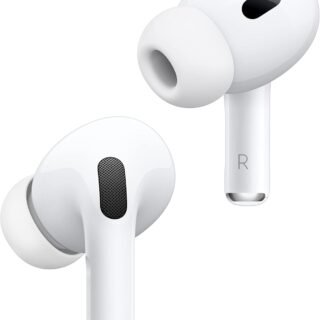 Apple AirPods Pro 2 Wireless Earbuds, Active Noise Cancellation, Hearing Aid Feature, Bluetooth Headphones, Transparency, Personalized Spatial Audio, High-Fidelity Sound, H2 Chip, USB-C Charging
Apple AirPods Pro 2 Wireless Earbuds, Active Noise Cancellation, Hearing Aid Feature, Bluetooth Headphones, Transparency, Personalized Spatial Audio, High-Fidelity Sound, H2 Chip, USB-C Charging
-
 Leo Creation 144 TC Cotton Double Jaipuri Prints Flat Bedsheet(Pack of 1, Blue, Gree, Red, Grey, Light Grey)
Leo Creation 144 TC Cotton Double Jaipuri Prints Flat Bedsheet(Pack of 1, Blue, Gree, Red, Grey, Light Grey)
₹2,999.00Original price was: ₹2,999.00.₹329.00Current price is: ₹329.00.
Leave a Reply